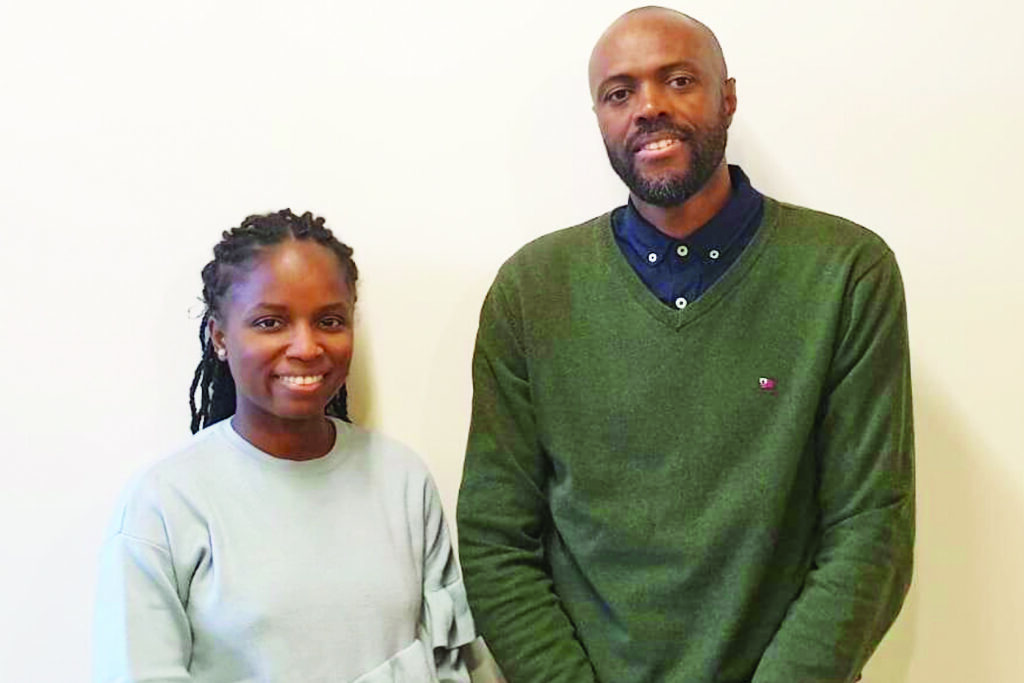Aleida Vieira, Bernardino Tavares
Meet the researcher
Originally from Cape Verde, a former Portuguese colony in Africa, we both migrated first to Portugal and then to Luxembourg, where we pursued our master’s and doctoral studies, respectively. Past and present interactions between Portugal and its former colonies have always sparked our interest, in this era perceived as postcolonial.
After arriving in Luxembourg in 2010 and 2014, respectively, at a first glance, we noticed the huge presence of Portuguese-speaking people in the country. Statistically speaking, individuals holding Portuguese nationality represented almost 16 % of the total population in 2021. However, for us, this number erases important historical layers underlying these so-called Portuguese migrants. For our previous studies, we realised that despite the abundance of research on Portuguese migrants in different domains of their presence in Luxembourg, there was no study aiming to unravel the diversity of Portuguese-speaking migrant groups. Indeed, some scholars have focused on institutionalised relations between nation-states that used to be colonisers and colonised, while others have studied micro-interactions – examining what patterns of inclusion or discrimination emerge when individuals from former colonies migrate to the former colonising country. However, postcolonial studies have not thoroughly examined and fully investigated the relations between these individuals or groups with colonial links. Especially the bonds developed when they all find themselves in the position of migrants in a third and new place. As a result, we don’t know much about how past colonial connections and asymmetric histories affect migrants’ social and work trajectories, reproduce old arrangements and rivalries or lead to new kinds of solidarities when these individuals share a colonial past, a common hope for better future but quite different historical positions in Luxembourg as a “third space,” and beyond.

We don’t know much about how past colonial connections and asymmetric histories affect migrants’ social and work trajectories.
As Lusophone subjects (i.e., originally from Portuguese-speaking countries), we feel the need to make sense of Lusophone migrants’ encounters, their language and their historical challenges in the officially trilingual Luxembourg. Talking about Lusophony in Luxembourg has almost exclusively referred to Portuguese migrants from Portugal. Lusophones from Africa and Brazil are, to a certain extent, invisibilised in the official numbers but are quite visible in the urban landscape. Most of them arrived in Luxembourg via remigration from Portugal (but also from other European countries) after obtaining European citizenship. However, it is important to understand that Lusophony embraces a diverse group of individuals coming not only from Portugal but also from former Portuguese colonies.
In April 2021, we started the DisPOSEG project, which stands for “Disentangling postcolonial encounters in globalisation: a sociolinguistic-ethnographic study of Lusophone migrant workers’ positionings in third space.” It is funded by Fonds National de la Recherche (FNR) under the CORE junior scheme for three years and investigates sociolinguistic and work encounters of those migrants. The project aims to demystify their presence in Luxembourg and to better understand postcolonial encounters outside of Portugal and its former colonies, where the migrants often share the same workplaces. To what extent do the vestiges of colonialism create solidarities, rivalries or inequalities between Lusophone migrants? We also want to nuance our understanding of how the Portuguese language is positioned in the linguistic market of Luxembourg. The project intends to observe how language can be an important tool for both reversion or perpetuation of colonial hierarchies in Luxembourg, branded as a multicultural and multilingual country par excellence.
Aleida Vieira was born in Cape Verde but grew up in Portugal, where she started engaging with migration and social justice issues during her training in journalism. She holds a bachelor’s degree in Sciences du Langage from the University of Lisbon and obtained her master’s degree in Engineering of Mediation at the University of Luxembourg. Aleida has been a family, legal, civil, and commercial mediator since 2019. She has joined several non-profit organisations focused on families and youth with a migratory background. Currently, she works as a Research and Development Specialist for DisPOSEG Project at the University of Luxembourg.
Bernardino Tavares, born in Cape Verde, got his master’s degree in Anglo-American Studies at the University of Coimbra, Portugal, in 2012. He got his PhD in Sciences du Langage in 2018, with a focus on the sociolinguistics of Cape Verdean migration trajectories into Luxembourg, within the FNR CORE junior project STAR at the University of Luxembourg. He is a sociolinguist committed to a postcolonial and ethnographic approach to his work. He has researched language, inequalities and mobilities in and between the global south and Europe. In 2019, he was awarded the Swiss Government Excellence Scholarship as a postdoc researcher at the University of Fribourg (Switzerland). Currently, he is a Research Scientist and the Principal Investigator (PI) of the DisPOSEG Project (since 2021) at the University of Luxembourg.
Als partizipative Debattenzeitschrift und Diskussionsplattform, treten wir für den freien Zugang zu unseren Veröffentlichungen ein, sind jedoch als Verein ohne Gewinnzweck (ASBL) auf Unterstützung angewiesen.
Sie können uns auf direktem Wege eine kleine Spende über folgenden Code zukommen lassen, für größere Unterstützung, schauen Sie doch gerne in der passenden Rubrik vorbei. Wir freuen uns über Ihre Spende!
